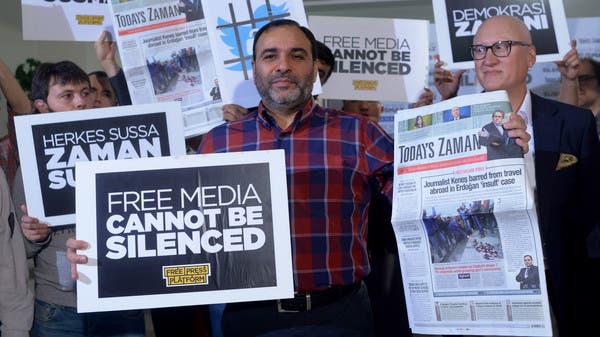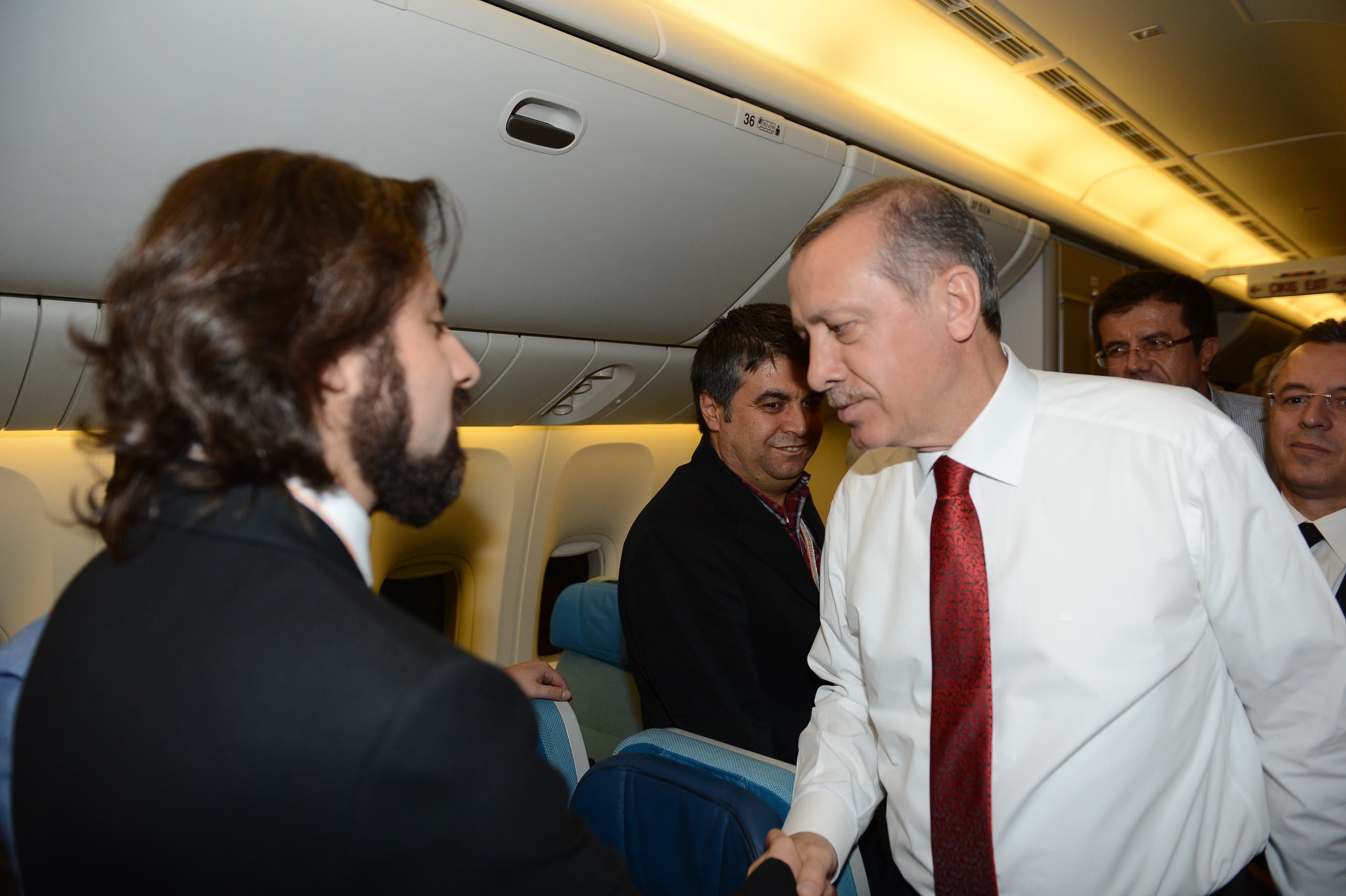Exiled Turkish journalist Bulent Kenes wants justice. He was indicted on three life sentences plus 15 years in prison in Turkey, after writing a column critical of Turkey’s President Recep Tayyip Erdogan in July 2016, just one week before a failed coup attempt.
“A few days after the coup attempt Erdogan’s regime announced a list of 47 critical journalists to be detained. My name was second in the list,” Kenes, who now lives in exile in Sweden, said in an interview with Al Arabiya English.
There can be no real retribution for these “unjust verdicts” in Turkey, according to Kenes, which is why he is welcoming a newly announced European tribunal that aims to serve justice in cases of human rights violations in his homeland.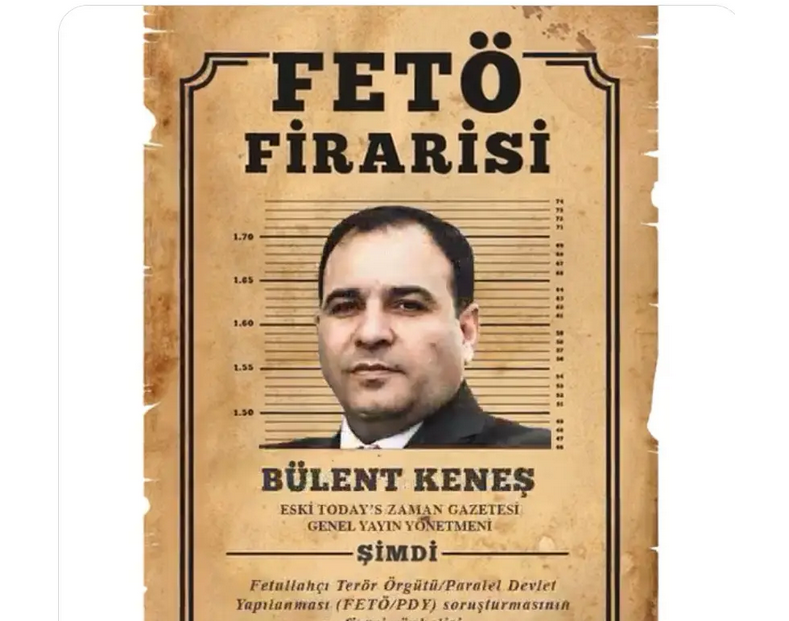
A “Wanted” poster for Bulent Kenes distributed by Turkey’s semi-official Anadolu news agency. (Supplied)
Turkey Tribunal
The ‘Turkey Tribunal,’ set to be held in Geneva in September, aims to shine light on Ankara’s human rights violations through testimonies of witnesses.
While the verdict by the judges will not be legally binding, the “ruling of the tribunal will have high moral authority,” according to the press release issued by the Turkey Tribunal.
As Erdogan systemically destroys Turkey’s system of checks and balances, it is admirable that Europeans have built up their own court to address these injustices, according to Imam Abdullah Antepli, a native of Turkey and professor at Duke University.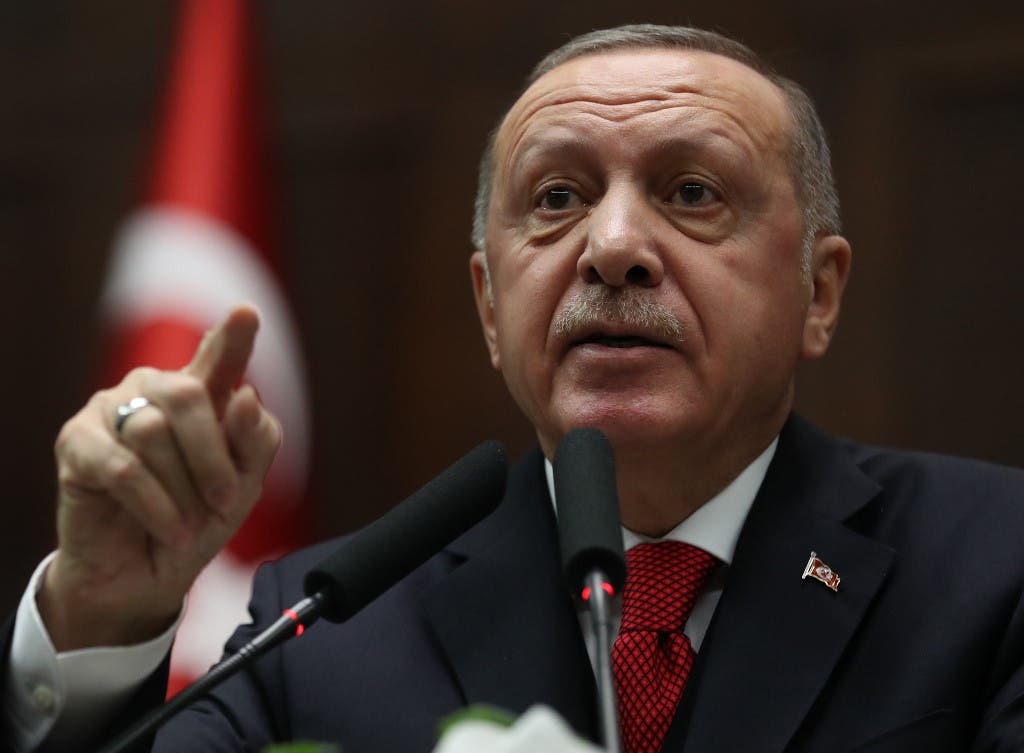
Turkish President Recep Tayyip Erdogan gives a speech in Ankara, on January 14, 2020. (AFP)
The tribunal’s final witness will report on whether the Turkish government tries to “destroy” voices critical of it, according to the statement, which added that Turkish officials will be given a chance to respond.
Face-to-face with Erdogan
Like Kenes, exiled Turkish journalist Ahmet Donmez narrowly escaped imprisonment for his critical journalism of the country’s top leader. In 2014 Donmez asked the Turkish president in a press conference about issues concerning corruption.
“Erdogan became very angry and threw insulting and scolding words towards me,” said Donmez in an interview with Al Arabiya English.
Ahmet Donmez with Turkish President Recep Tayyip Erdogan, during his time as a journalist in Turkey. (Supplied)
“One of the questions was about his purchase of an important media group and turning it into his mouthpiece,” he said, adding that Erdogan now controls all media in the country including the largest media empire, Doğan Media Group.
In the two years after the heated exchange, Donmez published books about Erdogan and his companies.
“Due to my books, President Erdogan, together with the former Prime Minister Binali Yıldırım, filed a case of defamation against me,” said Donmez, who decided to leave the country rather than fight the case, due to distrust of “Erdogan’s courts.”
Future of Turkey
Erdogan has silenced journalists from all walks of life, so no media outlet can publish any news against him or his allies, according to Donmez.
There are currently 153 journalists in prison in Turkey, according to the Stockholm Center for Freedom (SCF), an advocacy organization of which Kenes is a founder.
The Turkish government, which is ranked one of the top jailers of journalists in the world, argues that these detained individuals are not journalists – but terrorists.
“The ones who have been sentenced, who have been imprisoned, are not journalists. Most of them are terrorists,” said Erdogan in an interview with Bloomberg in 2017.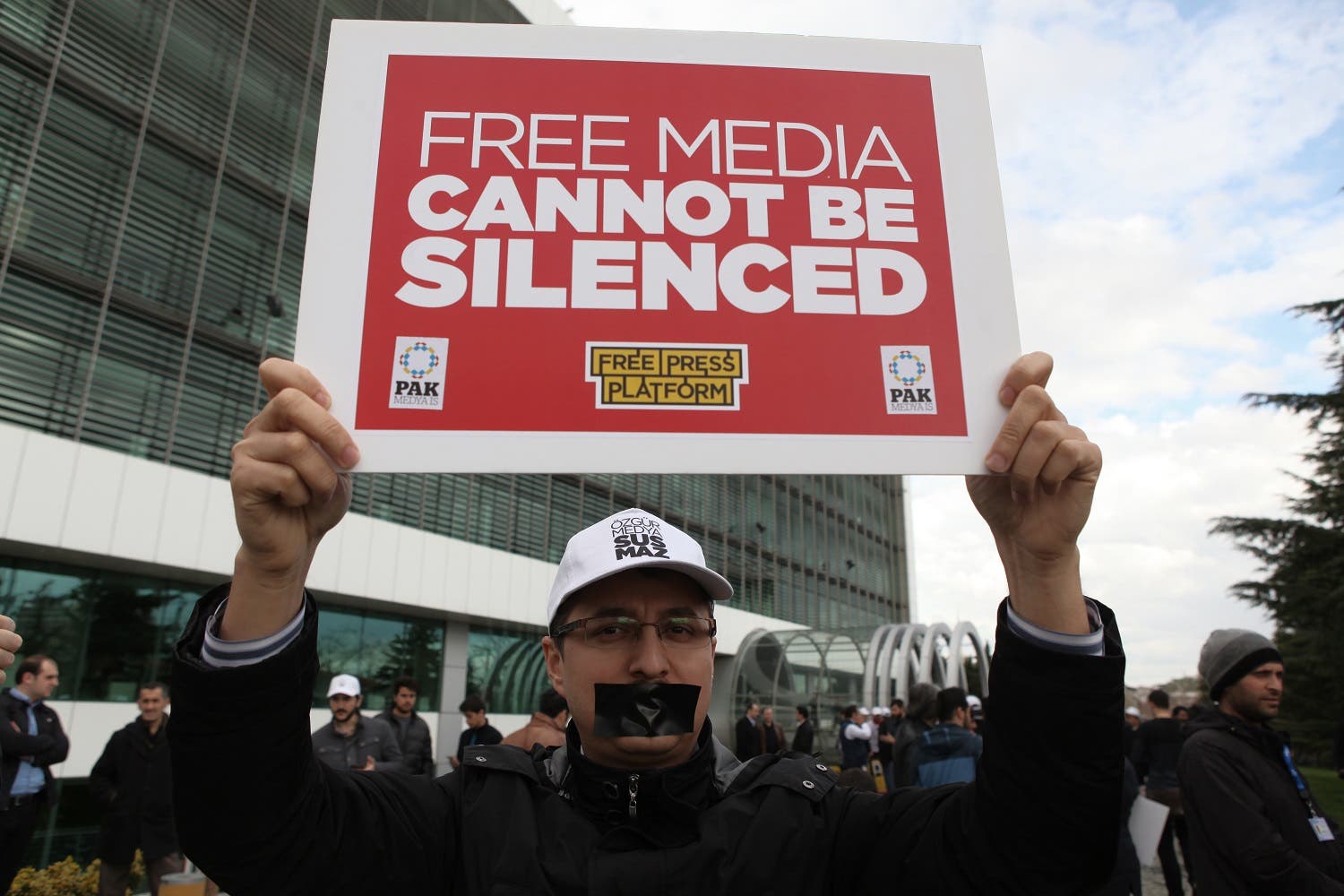
A man holds up a placard outside the offices of Zaman newspaper in Istanbul on March 4, 2016. (AP)
In three months, the Turkey Tribunal will convene to address this claim, and whether Turkey can still be considered a country that guarantees “a sufficient degree of freedom of the press and freedom of expression.”
For Kenes and Donmez, the answer to the question is a no-brainer.
“There is no real free media in Turkey, which now has a perfect media climate that is most appropriate for a one-man-despotic-rule,” said Kenes.
Emily Judd, Al Arabiya English Tuesday 23 June 2020
Source: Al Arabiya
